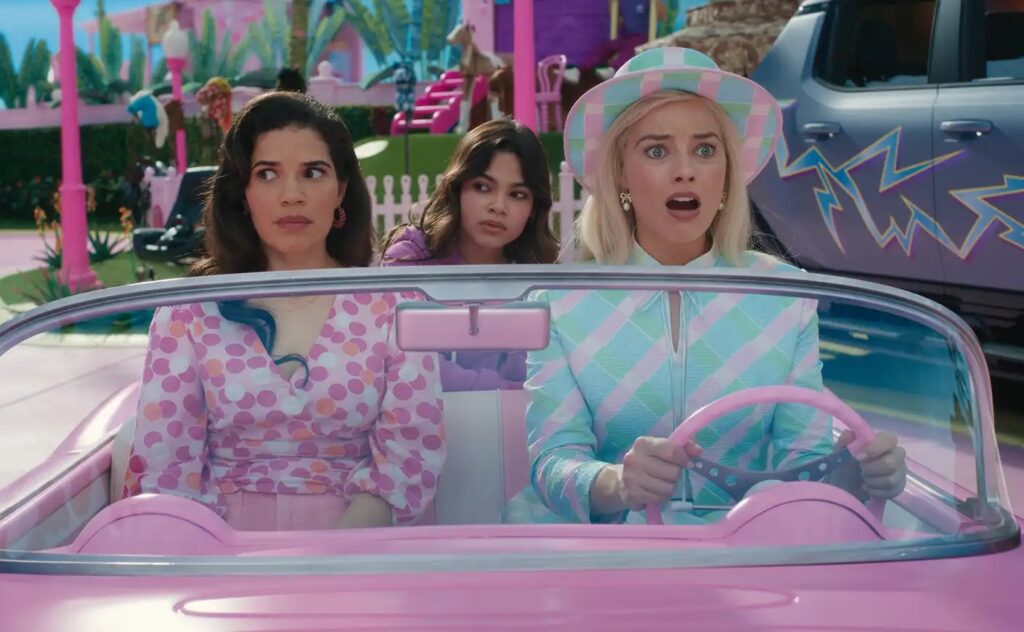The Oscar Barbie Snub & What It Tells Us About Patriarchy Everywhere
Jan 29, 2024 | Shalini Rai
It's doubly distressing that we are still talking about these things in the 24th year of the 21st century, not just in India or Asia or Russia but in the United States and concomitantly, the other countries that form part of the 'Western' world, which were once touted as the Mecca of women's emancipation and freedom
The Oscar nominations for movies released in the year 2023 have been announced. The most admired-by-feminists (and other women, grudgingly as well) film Barbie did not get the important nominations. The fact that it was not nominated for Best Actress in a Leading Role (Margot Robbie) and Best Director (Greta Gerwig) is being viewed widely as a snub to its makers. It is also being seen as confirmation of the sexism that permeates the Academy, given that Ryan Gosling has been nominated as Best Actor for the same movie.
Writing in Vox, Alex Abad-Santos says, “Like the Barbies in the movie Barbie, the film Barbie seemed capable of anything. From critical praise, to pop culture reverence, to box office domination, to culture war lightning rod, to doll sales, Barbie has checked every box. But it’s the few things Barbie won’t achieve that have caused a massive uproar: namely, Best Actress and Best Directing Academy Award nominations for Margot Robbie and Greta Gerwig, respectively. Their snubs have snowballed into an avalanche of proclamations that these exclusions show that the world we live in is brimming with misogyny and sexism. No matter that Gerwig and Robbie were recognized for screenwriting and producing, with the film nominated for a total of eight Oscars, including Best Picture. To some, it was even worse that Robbie’s co-star Ryan Gosling was nominated for Best Supporting Actor for playing Barbie’s patriarchy-loving non-boyfriend, Ken.”
Abad-Santos adds, “The inescapable Barbie discourse is a testament to how the movie made its feminist message accessible. It begins as a riff on creationism: The Barbies live in Barbie Land, a place where female Barbies are capable of anything and everything — from President Barbie (Issa Rae) to Nobel Prize Barbie (Emma Mackey) to Doctor Barbie (Hari Nef) to Stereotypical Barbie (Robbie). The Kens, who are all named Ken, are just another Barbie accessory. In the film, when Barbie and Ken venture to the real world, Ken finds out that men like him are in positions of power (doctor, president, cowboy) and are boosted by the patriarchy, a system he barely understands — and, crucially, doesn’t need to understand. Ken brings back symbols (horses and beer) and ideologies (subservient women) of the patriarchy to Barbie Land and brainwashes the trusting Barbies and eager Kens.”
He says further, “He’s finally stopped by regular human woman Gloria (Academy Award nominee America Ferrera) who explains via monologue the hardships women are held to in the real world. Gloria restores order in Barbie Land, allowing Barbies to reclaim their power. Still, Stereotypical Barbie makes the choice to move to the real world, even with all its imperfections. Using allegory and a hard-hitting speech, Barbie gives the audience a framework and language to point out the double standards that women endure, often without complaint. Barbie is cat-called on the street, and the Mattel overlords want to shove her into a box. Gloria is ignored in her job at Mattel, even though she has amazing ideas, and navigates the rejections of her teenage daughter seemingly alone, while her anodyne husband plays Duolingo. It raises the question of why society allows women to hurt like this, big and small. Why can’t things be better?”
Given this perspective, it’s a searing irony that Barbie has been snubbed at the Oscar. It has received eight nominations, sure…. But that fact seems like an after-thought and does not efface the glaring omission of Gerwig and Robbie from the meaty nominations, which, if they manage to win the coveted award, would have steered discussion towards the oft-ignored but still conspicuous elephant in the room — the combined weight of misogyny, sexism and patriarchy in denying little girls and grown women the opportunity to realise their full potential.
It’s doubly distressing that we are still talking about these things in the 24th year of the 21st century, not just in India or Asia or Russia but in the United States and concomitantly, the other countries that form part of the ‘Western’ world, which were once touted as the Mecca of women’s emancipation and freedom.
